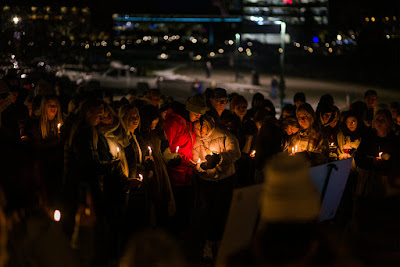 |
| Born in Johannesburg in 1932, Peter Magubane documented the brutality of apartheid and suffered from banning orders, solitary confinement and beatings as a result. From teaching himself as a boy with a Brownie camera, he went on to work for the influential magazine Drum and became Nelson Mandela’s official photographer. He died on New Year’s Day aged 91. Photo: The Soweto uprising on 16 June 1976, when more than 15,000 children protested against an editct making Afrikaans the medium of instruction in black schools. At first, the refused to be photographed but Magubane said a struggle without documentation was no struggle and they had to show the world what was going on in South Africa. The students agreed and this picture was taken by Peter Magubane. —The Guardian, January 12, 2024 |
Donna Katzin has served as the founding and former executive director of Shared Interest, a 30 year old non-profit organization that facilitates access to credit for low-income Black Southern Africans. In that capacity, she was privileged to meet and collaborate with Peter Magubane, and honor him. She currently co-coordinates Tipitapa Partners, which helps feed impoverished children and empower their mothers in Nicaragua. She also serves on the Board of the Fund for Community Change, as well as the Tikun Olam Commission of Reconstructing Judaism—working on reparations in the U.S. A proud wife and mother, she is a contributor to The New Verse News and author of With These Hands—poems about the "new" South Africa giving birth to itself.






